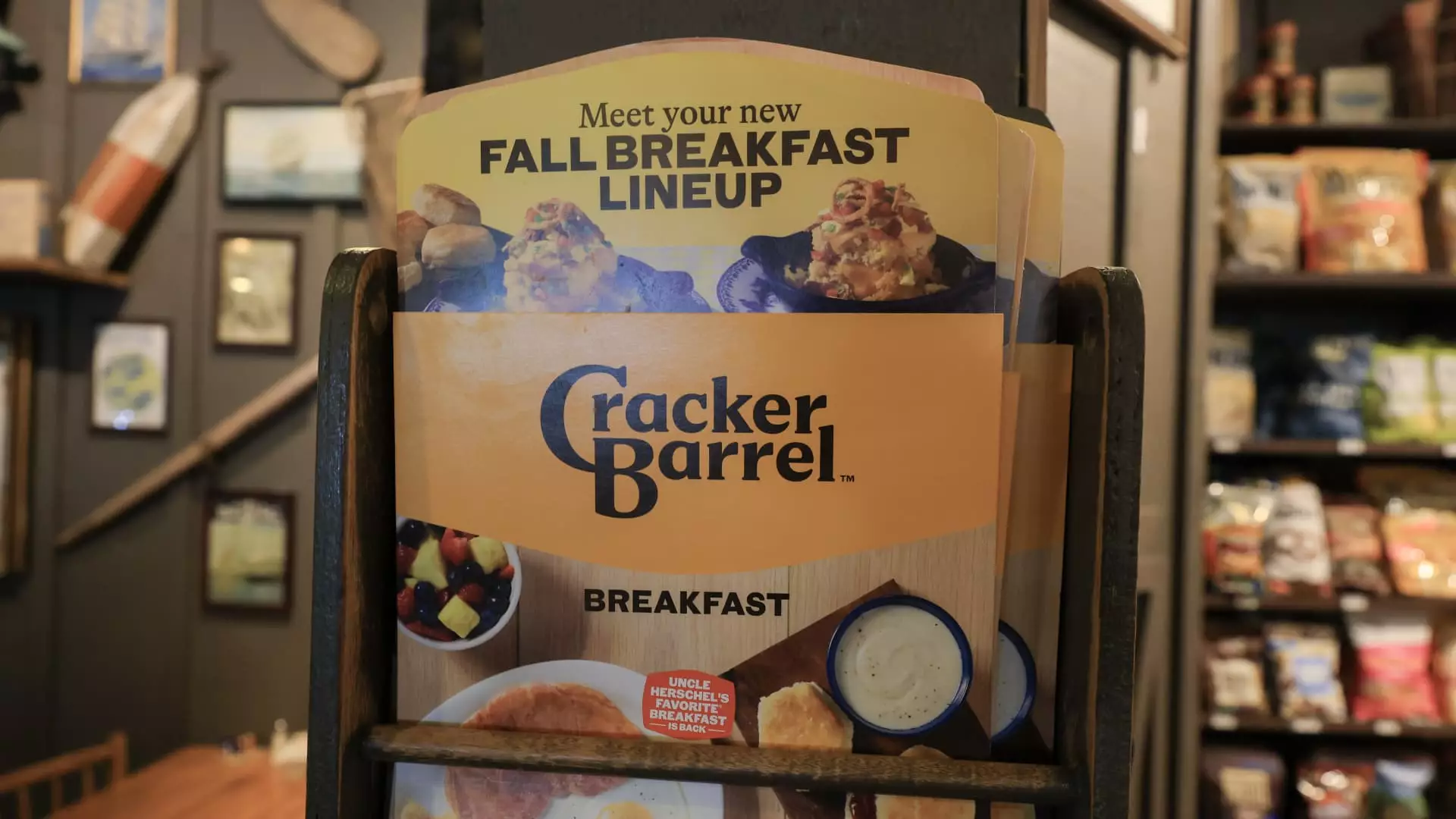Cracker Barrel, long revered as a bastion of Americana, finds itself at a crossroads where tradition clashes with modernity in a way that risks damaging its core identity. The recent logo overhaul, stripping away the charming illustration of a man leaning against a barrel and abandoning the phrase “Old Country Store,” is more than a superficial change. It symbolizes a broader cultural shift—one where cherished symbols are sacrificed on the altar of progress and political correctness. The company’s assertion that the redesign was inspired by scrambled eggs and biscuits rings hollow when contrasted with the palpable discontent among its loyal customer base, particularly those who see these changes as a betrayal of authenticity.
The move to a cleaner, more minimalist logo ostensibly aims to modernize the brand. Yet, it smacks of an insidious attempt to sanitize a traditional image that has connected generations through storytelling, rustic charm, and genuine American hospitality. Many customers perceive this as a capitulation—an abandonment of roots that had been a hallmark of the brand’s appeal. The removal of the iconic figure and the old-fashioned signage signals an alarming willingness to appease cultural trends that often feel disconnected from the values that built Cracker Barrel’s reputation.
Political and Social Pressures Undermining Heritage
The controversy extends beyond mere aesthetics. The social media buzz, fueled notably by figures like Donald Trump Jr., highlights an undercurrent of suspicion that the change was driven by political motives. Critics argue that the company’s leadership, under CEO Julie Felss Masino, is attempting to reframe the brand’s identity to align more closely with progressive ideals, particularly around diversity, equity, and inclusion. Such accusations, whether justified or not, erode trust among a significant segment of the traditional customer base, who see the brand’s efforts as a capitulation to what they perceive as cultural “wokeness.”
This trend reflects a broader societal dilemma—whether brands should adapt to changing social mores or stay true to the values that originally defined them. Cracker Barrel’s decision to refresh its visuals and interior decor, which some now consider a dilution of its country charm, exemplifies the tension between authenticity and adaptation. While the company claims that its values remain unchanged, critics see this as a carefully curated facade, masking a shift away from the rustic, homey ethos that turned the chain into a nostalgic American icon.
Market Reactions and Cultural Ramifications
The volatile response from investors and consumers reveals more than just fickle preferences; it underscores a societal fault line. The stock’s 10% drop following the logo change is a clear signal that many stakeholders—both financial and cultural—view these changes as risky and perhaps unnecessary. Smaller market cap companies like Cracker Barrel cannot afford to alienate their base without risking long-term repercussions. Moreover, the aesthetic dissatisfaction voiced on social media regarding the interior redesign hints at a deeper loss of the brand’s personality, replaced by sterile modern decor that estranges longtime patrons.
The backlash also reminds us how social media, especially political figures and activist voices, now dramatically influence corporate reputations and stock performance. The recent example of American Eagle soaring after a celebrity endorsement or Anheuser-Busch’s crisis following controversy illustrates the growing power of online discourse in shaping brand perceptions—not always in alignment with consumer loyalty or tradition.
Cracker Barrel’s predicament exemplifies the perilous balancing act facing brands rooted in tradition: embracing modernity without stripping away the values and symbols that foster trust. If the company genuinely believes in honoring its culinary and cultural heritage, it must resist the temptation to chase fleeting trendy sensitivities at the expense of what has historically made it special. Instead, it should see its cherished Americana not as a liability but as a strategic strength—something that can be modernized thoughtfully without obliterating its legacy.


Leave a Reply